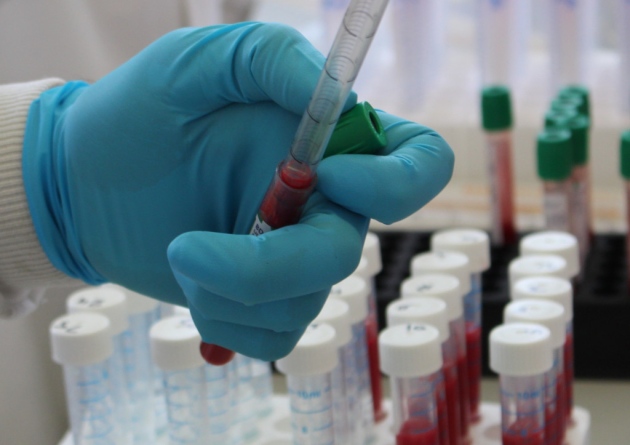
A rapid test that would enable farmers to effectively remove bovine TB from their herds has secured a £2.3m investment to take it through to validation.
Actiphage, developed by UK firm PBD Biotech, detects mycobacteria in a blood or milk sample, giving a simple yes or no answer.
It offers the potential to identify animals at an early stage of infection and remove them from the herd.
Full validation by the World Organisation for Animal Health (OIE) would enable international adoption of the rapid test.
Its use in England and Wales is currently approved by APHA as an unvalidated test for use only in a chronic bTB breakdown.
But OIE validation would enable it to be used in parallel with the existing skin test, offering farmers and their vets a method of managing and eliminating the disease for the first time.
Mark Hammond, CEO of PBD Biotech said: “It has been shown on-farm that when Actiphage is used within a disease management strategy it is possible to eliminate bTB from a herd and maintain a disease-free status.
"There is a significant international unmet need for a diagnostic for bTB and Johne’s Disease.
"With this funding we will be able to commission the trials needed to fully validate the test and capture this market.”
Former dairy farmer Jonnie Yewdall, who lost his family farm following a chronic bovine TB infection, is one of those who has helped fund for validation.
“I don’t want any more farmers to go through what I have, which is why I want to become involved.
"With tools like Actiphage, the industry has an opportunity to work together to potentially eradicate this very difficult disease.”
The funding has come from a consortium led by fund managers Mercia and the Foresight Group, which were both investing from the Midlands Engine Investment Fund; the University of Nottingham; the government’s Future Fund; and private investors including farmers and veterinary practices.
